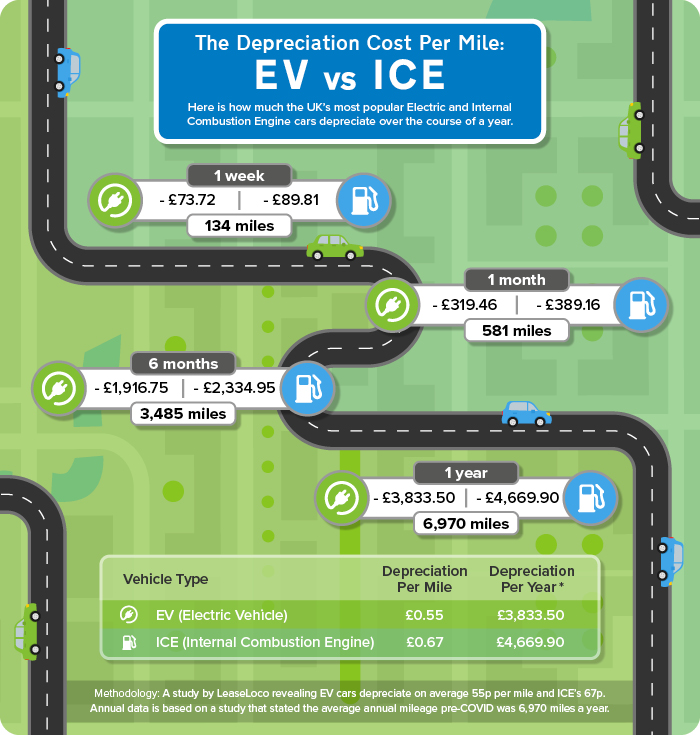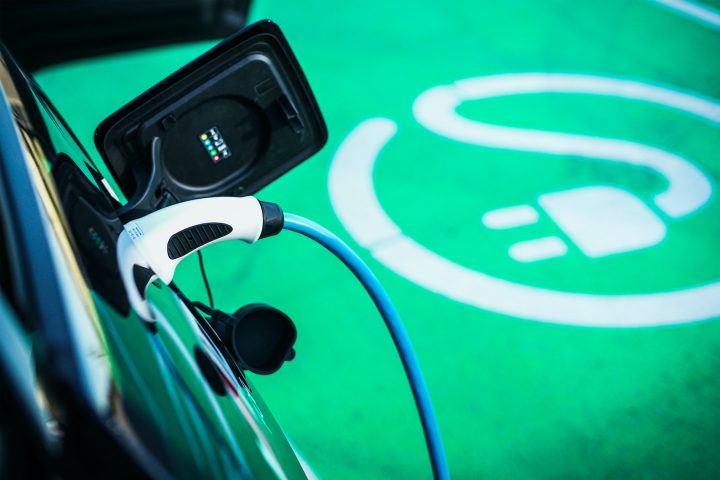A leasing company has analysed a popular online car marketplace and compared the prices of the UK’s most popular used cars against the number of miles the car had done to uncover the average depreciation cost per mile our cars drive.
The average price an petrol or diesel car depreciates is 67ppm or by £4,669.90 a year compared with an evs cost of 55ppm and £3,833.50 annually, meaning evs save 18% and £836.40 compared to a petrol or diesel model.
After analysing the UK’s favourite ICEs and EVs on the used car market, LeaseLoco’s study found that the MINI Hatch Electric depreciates the most, losing £1.82 per mile. If we use that study that states that the average annual mileage is 6,970 miles a year, that means over a 12 month period, the MINI would depreciate around £12,657, around £264 per week.
At the other end of the scale, where the cars depreciate the least, the best three cars are all electric, with the Vauxhall Corsa EV depreciating the least, only dropping 16p per mile, which translates to £1,128 per year and only £23.50 per week.
The UK’s favourite used ICE car, the Ford Fiesta, sits close to the bottom of the pile, only depreciating 24p per mile, £1,672 per year and £34.82 per week. Then, surprisingly, despite the MINI Hatch Electric topping the leaderboard, the ICE version fares relatively well, depreciating the 2nd best at only £4 more than the Fiesta.

The RAC is backing a major new national campaign to speed up the switch to electric cars by removing many of the barriers currently facing drivers.
FairCharge, which has been set up to ensure the environmental, economic and social benefits of the electric car revolution are properly harnessed, will push key EV issues to the forefront of the political agenda such as the cost, availability and speed of charging as well as battery range and the affordability of switching to an electric car.
The first focus will be tackling the current illogical VAT policy where EV owners who can’t charge at home pay four times more tax for their electricity from public on-street networks. Currently, VAT on domestic electricity is charged at 5% whereas those using public charge points unfairly have to pay 20% VAT.
FairCharge and the RAC believe this is an unnecessary barrier to switching to an electric car for the 38% of people who aren’t able to charge an EV at home as they would have no choice but to rely on the public charging network.
FairCharge will also campaign to ensure electricity at public charge points is priced fairly. This will help those needing to recharge on longer journeys and will avoid further penalising those who don’t have access to home charging.
There will also be scrutiny of charging providers’ domestic and public charging tariffs, without which there’s a risk that charging an EV on some public networks could become as expensive as filling up with petrol or diesel, undermining the speed of drivers switching to zero-emission vehicles.
This is likely to be opposed by charge point installers and HM Treasury however which want to recover investments and make up for lost fuel and VAT duties as petrol and diesel sales gradually decline.


